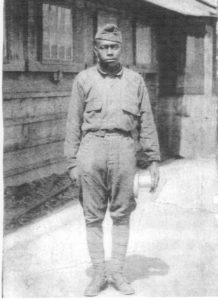
While on my journey of ancestral research and discovery, I have been intrigued by the many occupations in which my ancestors, relatives, and their neighbors labored in order to earn a living or satisfy their enslavers. There were those who rotated between several jobs and those changed careers though out the course of their lives. Here are just a few of the occupations in which they worked:
Dietitian/Nutritionist, Military Police, Teacher, Principal, Preacher, Homemaker, Seamstress, Food Service Worker, Domestic, Servant, Rice Farmer, Sugar Farmer, Soldier, Mechanic, Technician, Dock Worker, Barber, Carpenter, Laundress, Laborer, and Slave.
Here is a sampling of my predecessors and their peers listed along with mention of their primary occupations. More than likely they had legitimate side hustles in order to make ends meets.
1910 Pointe Coupee Parish, Louisiana , United States Federal Census
Oscar St. Louis a rice farmer
Auguste Nelson a sugar farmer
1930 New Orleans, Louisiana Federal Census, Edward Pierson a dock worker along with neighbors – Ella Claire, a laundress and Henry Chambers, a longshoreman
1839 Wheeling, Virgina City Directory, Frank McKee a barber and hair dresser, FMOC (Free man of color)
1860 Prairie Du Chien Wisconsin , United States Federal Census, Emanual Walker, saloon keeper (Francis McKee’s neighbor)
Slaves held Occupations Too!
There is a tendency for some us to think that the enslaved either worked in the fields picking planting, clearing, harvesting or in the “big house” cooking, cleaning, serving, and caretaking. Slaves , however, labored in many kinds occupations that were chosen by their owners. The following image is taken from an insured slave listing on the
Illinois Department of Insurance website.
Searches for enslaved individuals who may have been insured can be conducted using the
U.S., Slave Era Insurance Policies Index .
A Barber On The Move
Noting the occupations of some of my ancestors has sometimes played an important role in locating them and confirming that they are indeed, my ancestor. For instance, my paternal line who were free persons of color consisted of barbers and a few carpenters. It was the consistent mention of the occupation of “Barber” from census to census (coupled with other identifiers like name and age of course) in census records, city directories, and newspapers, etc. that always confirmed James McKee, and the adult males in his family as my ancestors and revealed their whereabouts. In James McKee’s case, from 1850- 1870, every ten-year census brought a new state of residence, the one thing that did not change was his occupation. Therefore, entering an occupation as part of the search criteria on a search engine or form was sometimes helpful in finding them.
Virginia (West Virginia) 1850
Wisconsin 1860
Louisiana 1870
Antiquated Occupations
I have also encountered historical occupations that were foreign to me like, “Carter”, “Drayman”, “Cooper” and many more. Not to mention individuals with occupation listed as “Gentlemen” in 19th century city directories. There are numerous lists of antiquated occupations and their definitions on the internet. This begs the question, “Will my occupation eventually go the way of the dinosaur and become obsolete and antiquated?” The “hot” job of today might elicit head scratching and blank stares fifty years from now!
Their Labor Was Not In Vain
Hardworking and sometimes highly skilled, my ancestors labor contributed greatly to the prosperity of their en-slavers, this country, and ultimately, toward providing for themselves and their families once they were free. They did this during a time when there were no laws that protected their wages, hiring, and work environment. I believe they labored and toiled in part, for those of us who would be their descendants. Oh, and the photo of the soldier at the beginning of this post, my maternal grandfather Sargent Albert A. Nelson who was also a minister. I will continue to explore the occupations of my ancestors and in particular the women in future posts .©
Click/Tap title below for more information
https://rover.ebay.com/rover/1/711-53200-19255-0/1?ff3=4&toolid=11800&pub=5575243699&campid=5337987435&mpre=http%3A%2F%2Fwww.ebay.com%2Fitm%2FVintage-Paymaster-Series-S-1000-Check-Writer-w-Key-%2F142164745981%3Fhash%3Ditem2119addefd%3Ag%3ArmsAAOSwvzRXxZcT
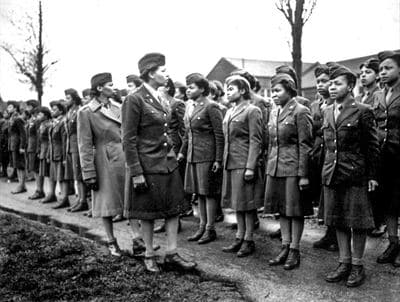


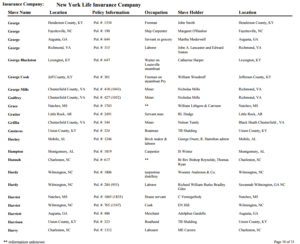



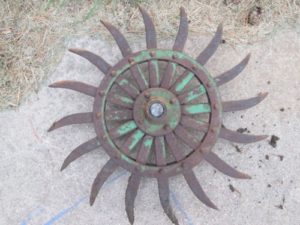
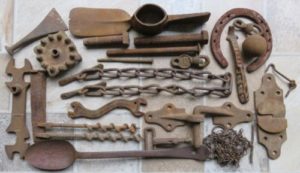
Camille Johnson
Very interesting. Great blog!!!
Anita Henderson
Great insight into some of the occupations held by black people back in the day. Yes, we worked then as we do now.
Katherine
I love this post! Following career is one of the more interesting part of genealogy research. I also like all the photos you use as backdrop.
RG
Nice post!
Kristin
I also find it interesting to trace my ancestors work. And I’ve tracked them by those jobs too.
Adrian Wells
Great Post!
Beverly A Harper
Congratulations ! Well Done! Occupations !
True
CONGRATULATIONS! Karen! Look forward to reading about your Roots!
Renate Sanders
Good post, Karen. I love your beautiful photographic wallpaper, too! 🙂
Renate
Super Woman
Thanks Renate!Thanks all for your encourage encouragement!
Tracey Martin
Beautiful job!! You truly inspire me, and one day I hope to research my ancestors as diligently as you have researched yours!! 😉
Shelley Murphy
Enjoy it Karen, great job! I learn so much from reading folks blogs. I really need to order the book.
Owain
I have found finding out what my ancestors occupations were to be quite interesting. Rather than just knowing what they did for a living it’s important to know just what exactly was involved. You get a real sense of appreciation for your ancestors this way.
Thank you for sharing.
Col William C. "Chip" Morrison
Keep at Karen. Nothing like family history. Be extraordinarily proud of your ancestry. In the end when we face the Good Lord we are all equal and all are responsible. I doubt seriously that our souls have any color but surely all souls have scars incurred as we travel life.